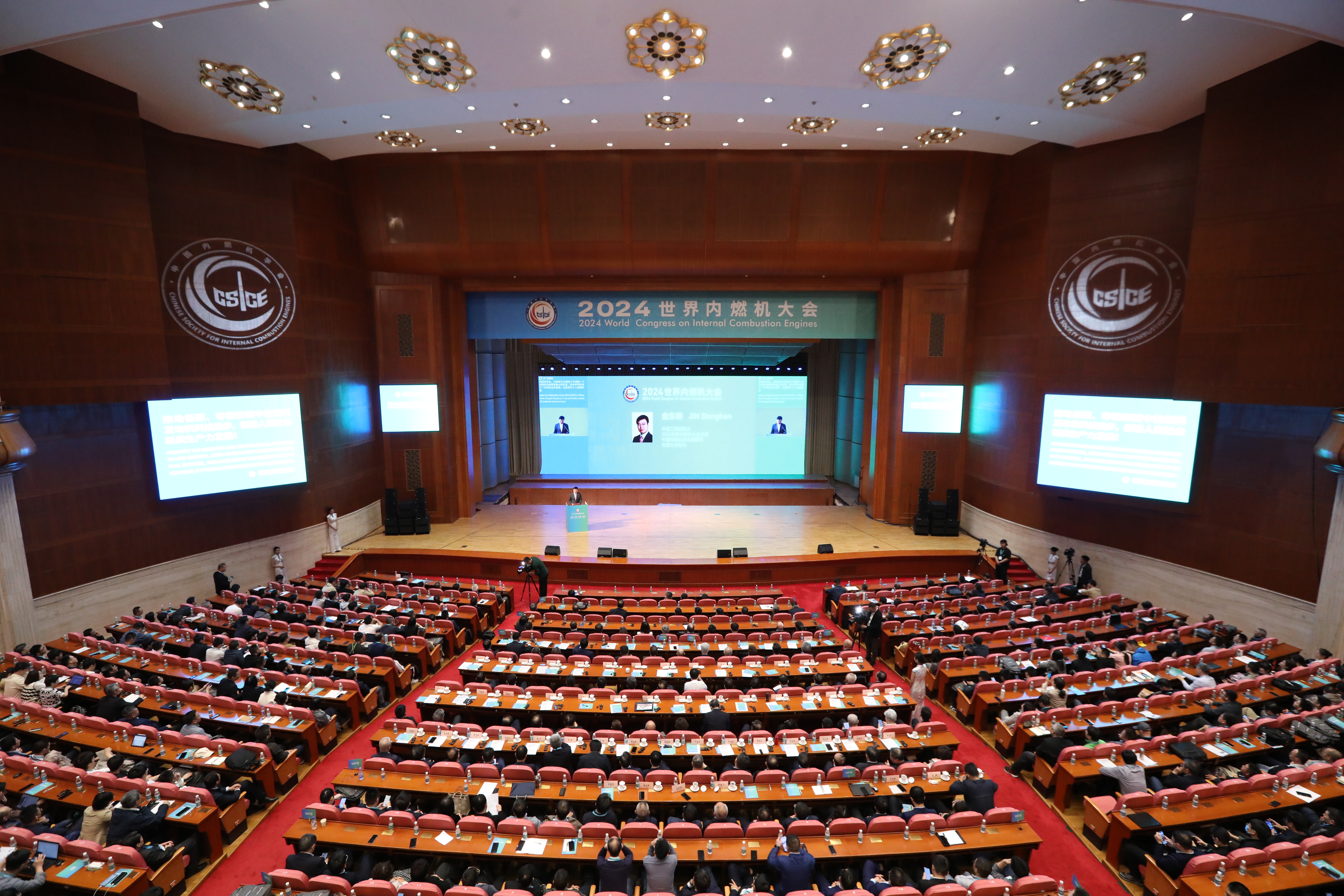By YIN Wei

The?conference?site.?(COURTESY?PHOTO)
The world's most efficient commercial diesel engine made its debut at the inauguration of the 2024 World Congress on Internal Combustion Engines?in Tianjin on April 20.
Weichai Power Co. introduced the engine with a brake thermal efficiency exceeding 53 percent, a milestone for both the industry and key technologies like high-expansion combustion and high-efficiency fuel injection. Weichai estimates that if the technologies are used extensively, China can save nearly 20 million tons of fuel and reduce carbon emissions by over 60 million tons annually. This will help to accelerate the realization of China's "carbon peak and carbon neutrality" goals.?
The world congress, themed "Green, Reliable, Intelligent, Efficient", and organized by the Chinese Society for Internal Combustion Engines and Tianjin University, brought together academicians, scientists, entrepreneurs and technology workers from over 20 countries to discuss the future development of internal combustion engines against the backdrop of the dual carbon goals.
They included distinguished names such as Wan Gang, chair of the China Association for Science and Technology, Zhang Gong, mayor of Tianjin and deputy secretary of the Communist Party of China’s Tianjin Municipal Committee, Rick Boom, president of the International Council on Combustion Engines, Jin Donghan, president?of both the 2024 World Congress on Internal Combustion Engines and Tianjin University?and an academician of the Chinese Academy of Engineering, and An Tiecheng, chairman of China Automotive Technology Research Center Co.
The attendees were unanimous that in the face of the enormous challenges of global energy transformation, internal combustion engines play a critical role in promoting economic and social development. Carbon-neutral fuels and zero-carbon fuels will rejuvenate the internal combustion engine industry.
"In the realm of transportation, engineering machinery, and long-distance shipping, internal combustion engines stand as the predominant driving force, promising substantial potential in promoting energy conservation and carbon reduction. We aim, through this congress, to actively explore the pathways to achieve carbon neutrality through internal combustion engine technology, thereby contributing to the advancement of the global internal combustion engine industry and enhancing human societal well-being,"?Jin Donghan said.
Co-host Tianjin University has a series of landmark accomplishments?in the field of internal combustion engines and has won 18 national-level scientific and technological awards.
"Tianjin stands as a significant hub for China's internal combustion engine industry, boasting strong foundations in research and development, manufacturing, testing, and component production. The convening of the World Congress on Internal Combustion Engines in Tianjin holds particular significance, both for the city and the internal combustion engine industry," Jin added.
The World Congress on Internal Combustion Engines?was initiated by the Chinese Society for Internal Combustion Engines in 2018. Today it is a comprehensive technical exchange event for the global internal combustion engine industry. Held every three years, it includes international academic exchanges, forums, promotion of technical achievements, high-end product exhibitions, and on-site technical inspections.
This year's congress?collected more than 500 academic papers and had various sub-sessions, such as Sustainable Transportation and Intelligent Control, Efficient and Clean Combustion, and Carbon Neutrality and Emission Control Technology. Twenty-one leading?lights from?the?internal?combustion?engine?and?related?industries?showcased?new?technologies and?products at?the?exhibition.
The trio will conduct a series of experiments in fields such as life science, fluid physics, combustion science and materials science. Notably, this is the first time that fruit flies have been taken on a Chinese space mission as experimental subjects. What made scientists choose fruit flies? What experiment will they undergo?
